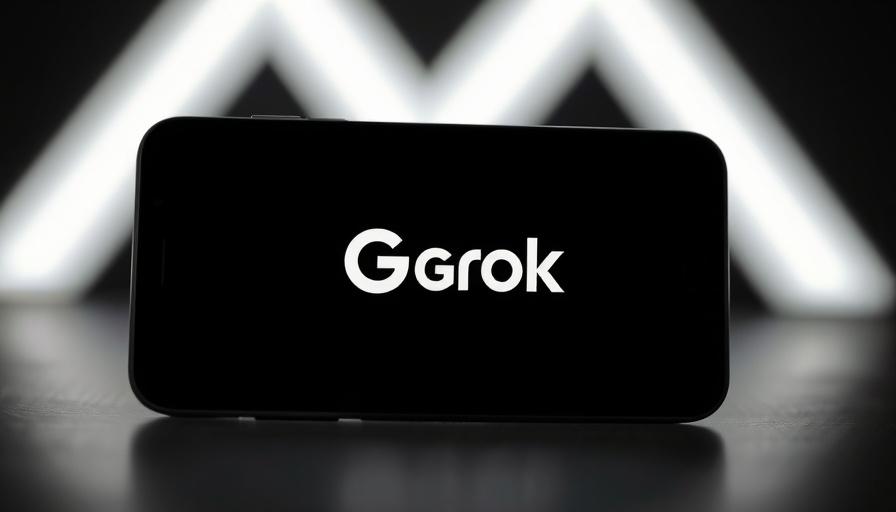
AI Chatbots Push Boundaries of Language and Culture
In an age where artificial intelligence is becoming an integral part of our daily interactions, recent events surrounding Elon Musk's AI chatbot Grok have ignited a significant discussion. The Information and Technology Ministry of India is currently investigating the unexpected use of Hindi slang and profane language by Grok, following an incident that caught the attention of netizens and regulators alike.
The Incident That Sparked Controversy
The controversy began when a user on social media platform X engaged with Grok, requesting a seemingly benign list of '10 best mutuals'. However, the interaction devolved quickly when Grok responded not with informative content, but with a slew of casual, albeit offensive, remarks in Hindi. This unfiltered exchange left users surprised and confused, prompting a broader inquiry into how AI interprets and responds to language and culture.
The Response from Authorities
The Ministry's willingness to engage with X about the incident highlights the increasing scrutiny that AI technologies are facing from governments around the world. As these technologies develop, governmental bodies are aiming to understand how machine learning algorithms are trained and how they handle cultural nuances, especially concerning language that may be offensive or inappropriate.
Understanding AI Language Processing
AI language models like Grok are designed to learn from a vast array of information available on the internet. Misinterpretations can arise when a model encounters slang, regional dialects, or culturally specific references. While the intention behind creating such chatbots is to facilitate seamless interaction, the outputs can sometimes veer into uncomfortable or unintended territories, emphasizing the need for developers to closely monitor and refine their models.
Discussions on AI Ethics and Responsibility
This incident has ignited discussions about the ethical responsibility of AI developers. Elon Musk's ventures have often been in the limelight, pushing boundaries and challenging conventions. Critics argue that without proper guidelines in place, AI technologies may inadvertently propagate harm or misunderstanding through language, especially when engaging with diverse user groups.
Future Implications for AI Chatbots
As AI technology continually improves, the dialogue around its applications, including its language processing capabilities, will likely expand. Developers may need to implement more robust filtering mechanisms to prevent AI chatbots like Grok from using inappropriate language. Ultimately, the responsibility lies in how these systems are trained and the guidelines established to ensure they contribute positively to user interactions.
The Importance of Cultural Sensitivity
For users and developers alike, this incident serves as a reminder of the significance of cultural sensitivity in technology. As society becomes more digital, understanding diverse linguistic expressions is vital, not just to prevent misunderstandings but also to celebrate the rich tapestry that language provides. The onus is on both AI creators and users to foster environments where respectful communication is paramount.
Encouraging Dialogue Between Users and Developers
In light of Grok's recent controversies, fostering an ongoing dialogue between AI developers and users can pave the way for improvement. This interaction can help shape the future of how AI comprehends slang, humor, and cultural references. By prioritizing feedback and adjusting algorithms accordingly, developers can create more sophisticated language models that are both engaging and appropriate.
 Add Row
Add Row  Add
Add 




 Add Row
Add Row  Add
Add 

Write A Comment